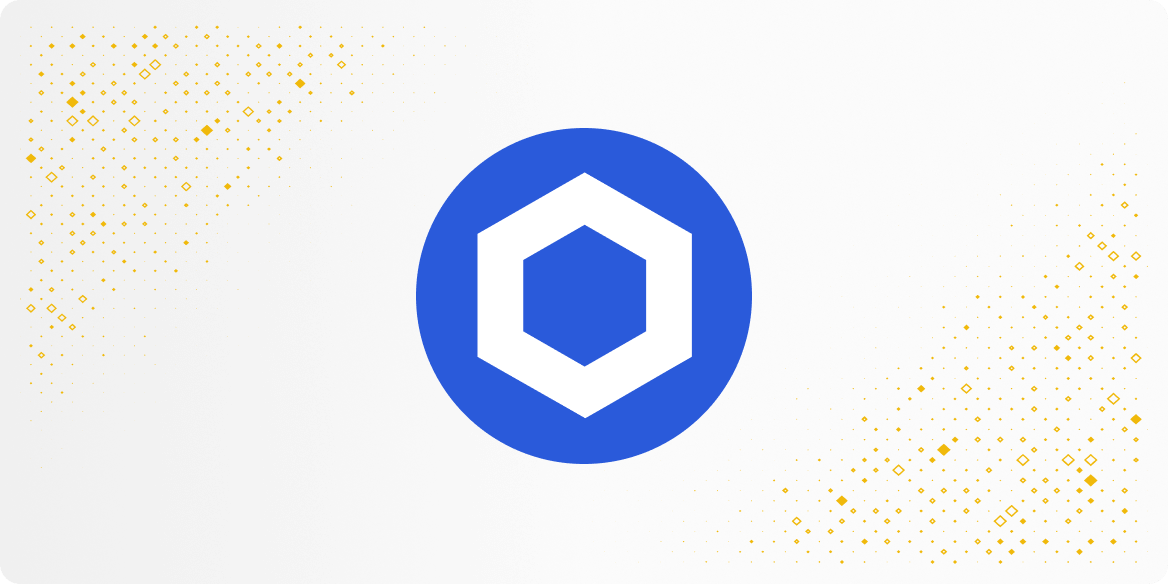
What is ChainLink
ChainLink is a decentralized oracle network that enables smart contracts on the Ethereum blockchain to securely access off-chain data feeds, web APIs, and other resources. Oracles are essentially middleware that provide a bridge between the blockchain and the real world, allowing smart contracts to retrieve data from external sources and use it to trigger their execution.
ChainLink was founded in 2014 by Sergey Nazarov, who saw the potential for using oracles to enhance the capabilities of smart contracts. At the time, smart contracts were limited to executing only within the constraints of their own code and the data stored on the blockchain. This made it difficult for them to access real-world data, such as stock prices or weather conditions, which are constantly changing and not stored on the blockchain.

Nazarov realized that by using oracles, smart contracts could access this external data and use it to trigger their execution. For example, a smart contract could be set up to automatically pay out insurance claims when certain weather conditions are met, as determined by data provided by an oracle.
ChainLink was designed to be a decentralized oracle network, meaning that it is not controlled by a single entity but rather relies on a network of nodes to provide data to smart contracts. This decentralized design helps to ensure the security and reliability of the network, as it is less vulnerable to single points of failure or tampering.
ChainLink works by using a network of nodes that are run by independent operators. These nodes are responsible for retrieving data from external sources and providing it to the smart contracts that request it. The nodes are incentivized to provide accurate and reliable data through a system of rewards and penalties.
The ChainLink network uses a reputation system to evaluate the performance of nodes and determine their rewards. Nodes that consistently provide high-quality data are rewarded with LINK, the native token of the ChainLink network. On the other hand, nodes that provide inaccurate or unreliable data are penalized and may have their reputation negatively impacted.
One of the key benefits of using ChainLink is that it allows smart contracts to access a wide range of external data sources. This includes data feeds from financial institutions, weather data from government agencies, and API data from web services. This enables smart contracts to interact with the real world in a much more sophisticated way, enabling a wide range of applications and use cases.
For example, ChainLink can be used to automate supply chain management, enabling smart contracts to automatically trigger the release of payments or the movement of goods based on real-time data. It can also be used in the financial industry, allowing smart contracts to automatically execute trades based on real-time market data.
In addition to its use in smart contracts, ChainLink has also been adopted by a number of decentralized finance (DeFi) platforms as a way to provide reliable data to their smart contracts. DeFi platforms rely on accurate and reliable data in order to function properly, and ChainLink’s decentralized oracle network is well-suited to this task.
Overall, ChainLink is an important innovation in the world of blockchain and smart contracts. Its decentralized oracle network allows smart contracts to securely access external data and interact with the real world in a much more sophisticated way. This enables a wide range of applications and use cases, including supply chain management, financial trading, and DeFi platforms. As the adoption of blockchain technology continues to grow, it is likely that ChainLink and other oracle networks will play an increasingly important role in enabling smart contracts to reach their full potential.
Competitors
There are a number of other decentralized oracle networks that compete with ChainLink in the market. Some examples include:
- Band Protocol: This is a decentralized oracle platform that allows developers to build applications that rely on external data sources. Like ChainLink, Band Protocol uses a network of independent validators to provide data to smart contracts.
- Orchid: This is a decentralized VPN service that uses a network of independent validators to provide data to smart contracts. Orchid aims to provide a secure and private connection to the internet, allowing users to access restricted content and bypass censorship.
- Tellor: This is a decentralized oracle platform that uses a proof-of-work (PoW) consensus mechanism to secure its network. Tellor is focused on providing data for the decentralized finance (DeFi) industry, and has a number of partnerships with DeFi projects.
- ChainGuardian: This is a decentralized oracle platform that aims to provide reliable and accurate data to smart contracts. Like ChainLink, ChainGuardian uses a reputation system to incentivize validators to provide high-quality data.
There are also a number of centralized oracle platforms that compete with ChainLink, such as Oraclize and API3. These platforms are generally easier to use and more cost-effective than decentralized oracle networks, but they are less secure and more vulnerable to tampering and censorship.

Comments